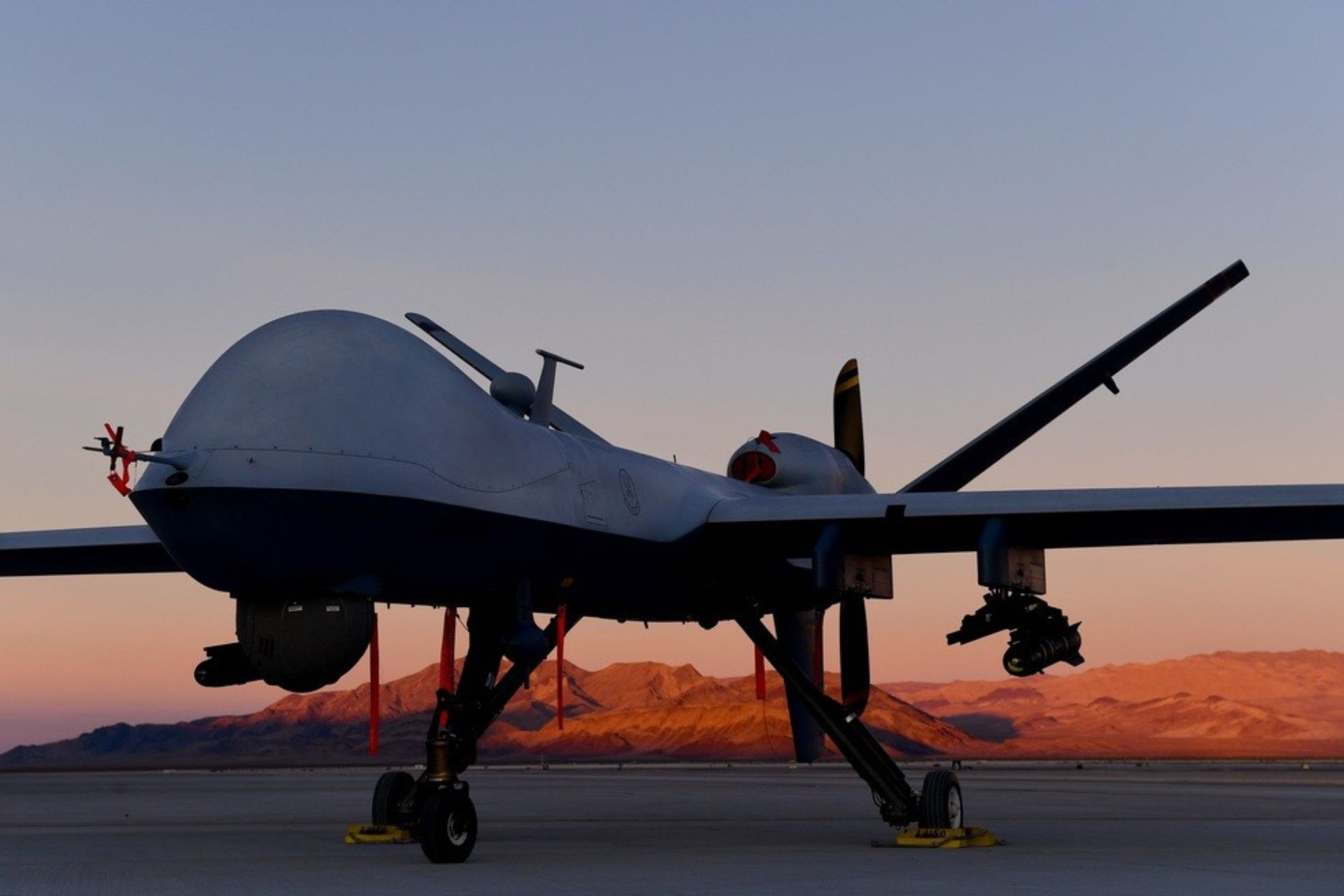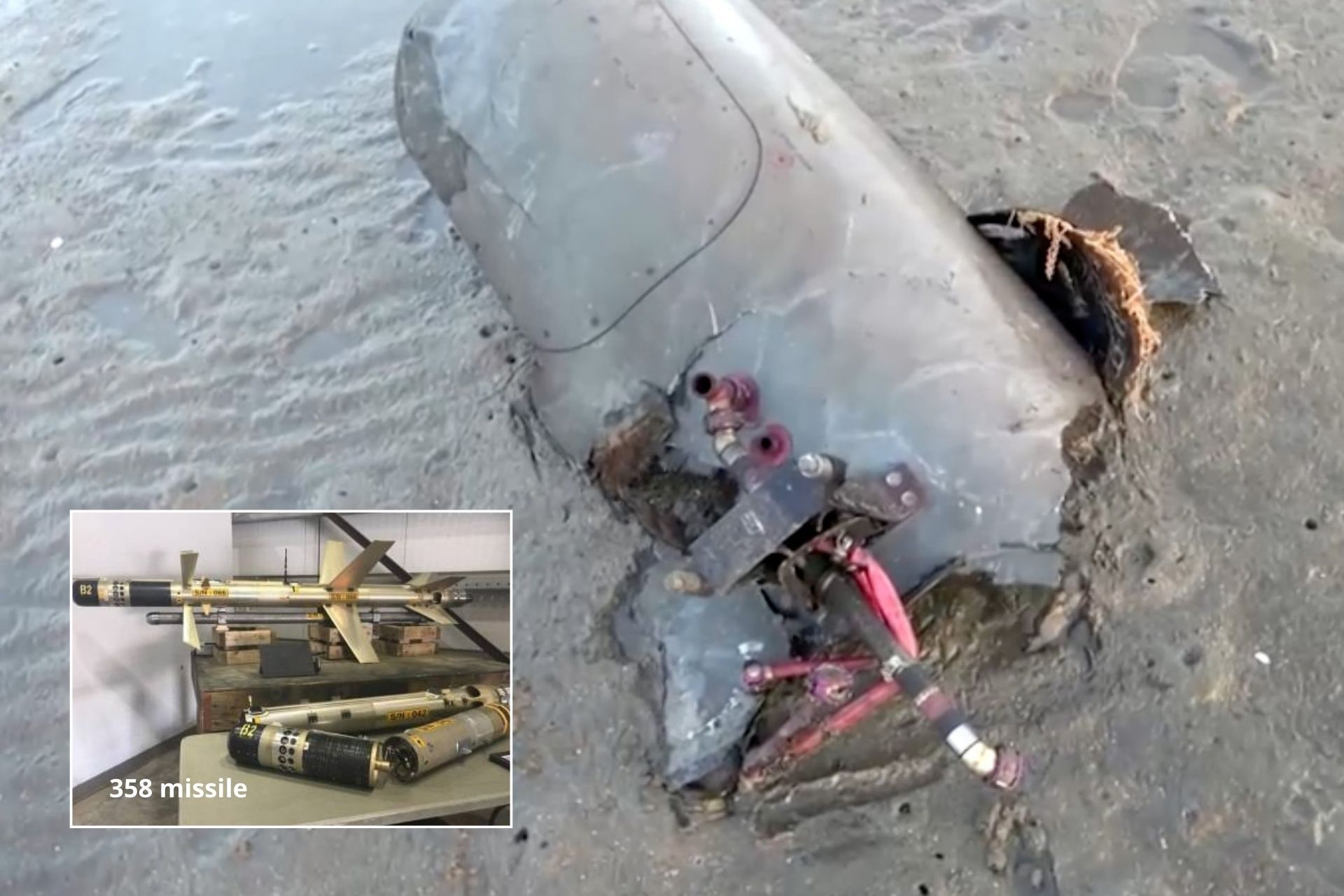Breaking News
Houthi Rebels Report Shooting Down Second US MQ-9 Reaper Drone Over Marib Province.
Yemen’s Houthi rebels claimed on September 8, 2024, to have shot down another American-made MQ-9 Reaper drone over Yemeni territory, according to reports from Japan News. If confirmed, this would mark the latest in a series of incidents where the Houthis have targeted these costly U.S. military surveillance aircraft. In response, the Houthis reported that U.S. forces launched airstrikes on Houthi-controlled areas following the downing.
Follow Army Recognition on Google News at this link

The Houthis have regularly targeted General Atomics MQ-9 Reaper drones since taking control of Yemen’s capital, Sanaa, in 2014 (Picture source: US DoD)
The U.S. military acknowledged the Houthis' claim but stated that they had received no official reports of an American drone being shot down over Yemen. The Houthis did not provide any visual evidence, such as photos or videos, to support their claim, although such material has sometimes emerged later in propaganda footage. However, the Houthis have regularly targeted General Atomics MQ-9 Reaper drones since taking control of Yemen’s capital, Sanaa, in 2014. These incidents have increased in frequency, particularly after the start of the Israel-Hamas conflict, during which the Houthis have also escalated their attacks on shipping in the Red Sea corridor.
Houthi military spokesperson Brigadier General Yahya Saree made the announcement in a pre-recorded video, stating that the drone was brought down over the Marib province, a contested region rich in oil and gas resources, held by allies of a Saudi-led coalition since 2015. Saree did not elaborate on how the drone was shot down, but it is known that the Houthis have used Iranian-supplied surface-to-air missiles, specifically the 358 model, for several years. Iran denies arming the Houthis, despite Tehran-manufactured weapons being found on the battlefield and in intercepted seaborne shipments to Yemen, despite a United Nations arms embargo.
Saree framed this incident as part of the Houthis' ongoing "jihadist duties" in support of the Palestinian people and in defense of Yemen. The MQ-9 Reaper, which costs around $30 million per unit, can fly at altitudes up to 50,000 feet (15,240 meters) and stay airborne for up to 24 hours. After the Houthi claim, their satellite news channel, al-Masirah, reported U.S.-led airstrikes near the city of Ibb. Later on Sunday, U.S. Central Command confirmed the destruction of three Houthi drones and two missile systems in Houthi-controlled territory but provided no additional details.
The MQ-9 Reaper, produced by General Atomics, entered production in 2001 and was acquired by the U.S. military soon after. It became operational with the U.S. Air Force in 2007 and has since become one of the most widely used unmanned aerial vehicles (UAVs) for intelligence, surveillance, and reconnaissance (ISR) missions, as well as precision strikes. Recent reports indicate that over 300 MQ-9 Reapers are currently in service with various branches of the U.S. military, as well as allied nations, including the UK, France, and Italy.

Houthi military spokesperson did not elaborate on how the drone was shot down, but it is known that the Houthis have used Iranian-supplied surface-to-air missiles, specifically the 358 model, for several years (Picture source: Houthi Army)
The Reaper is renowned for its long endurance and high-altitude capabilities, equipped with advanced sensors and targeting systems. It can carry a range of precision munitions, including Hellfire missiles and laser-guided bombs, making it a versatile platform for both reconnaissance and combat missions. Its advanced targeting technology enables it to conduct precise strikes, making it a crucial asset in modern military operations.
Since January, U.S. forces have intensified airstrikes against Houthi targets, with the rebels having attacked more than 80 merchant vessels using missiles and drones, resulting in casualties and significant damage to ships.
To counter the increasing Houthi threat to U.S. drones like the MQ-9 Reaper, several defensive measures could be considered. One approach is to enhance electronic countermeasures that could neutralize the Houthi surface-to-air missile systems by disrupting their detection and targeting capabilities. Another strategy would involve incorporating active defense systems on the drones themselves, allowing them to detect and counter incoming threats autonomously.
In addition, improving intelligence and surveillance efforts is crucial for anticipating attacks by monitoring Houthi-controlled areas and identifying potential missile launch sites before they become operational threats. Increasing drone autonomy and evasion capabilities through advanced technologies like artificial intelligence could also minimize their vulnerability to enemy defenses, allowing drones to evade missiles more effectively. Finally, the U.S. could intensify preemptive air operations, including targeted strikes to neutralize Houthi missile systems, thereby reducing the risk to drones operating in hostile areas.


























